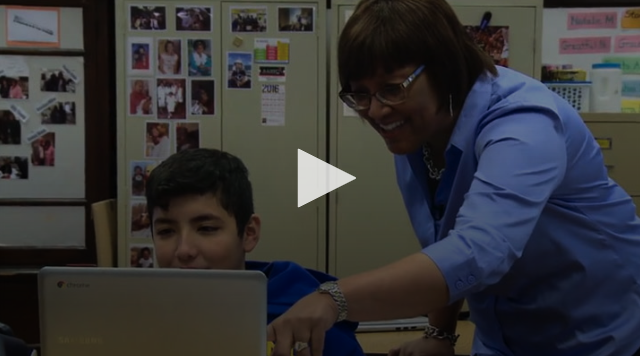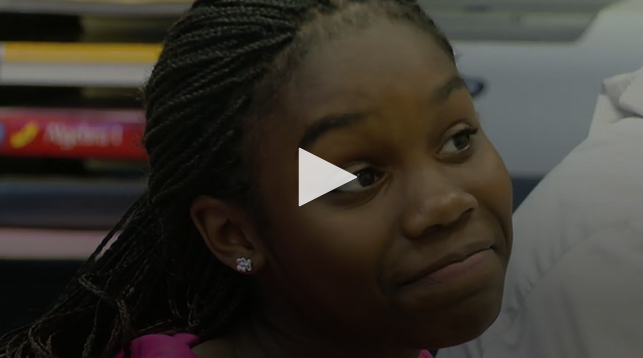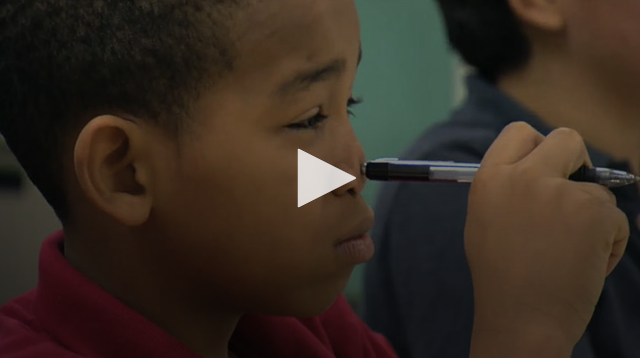The concept seems contradictory, right? You’ve been trained to keep your head down, do your work, and try not to get noticed. You’re a new teacher; tenure is two to four years away, and you’re just trying to survive. But these first few years are not only pivotal in creating your own teacher identity but also, and perhaps more importantly, to establishing your own happiness in the field.
Teacher retention is a huge issue in education today, and I’d argue that one reason (out of a litany of other reasons) newer teachers choose to leave the field is because of this very concept: self-imposed isolation until tenure.
There are a million books out there that provide tangible strategies for new teachers, offering suggestions on the importance of classroom management or connecting with kids and so much more, and all of that is great. But I’d like to present to you, the new(er) teacher, a paradigm shift: don’t wait to take risks. The time is now for you to be you, and here are five areas in education for you to begin taking risks as soon as yesterday.
Take Risks With Your Students
Risk taking with your students encompasses a wide range of possibilities. I like to think of taking risks with students in three different categories:
- Pedagogical risks
- Potential risks
- Personal risks
Districts tend to be most supportive of pedagogical risks, as a whole. As districts work to plan professional learning for teachers — especially new teachers — there is, at worst, an inherent push to new pedagogies and, at best, deliberate sharing of cutting-edge approaches to instruction.

VIDEO: Taking a Leap Into Blogging
Potential risks don’t involve your potential as a new teacher, but that of your students. As you think about planning lessons, worry less about what you think kids might not be able to do, and focus more on what kids might be able to do with the right support. In other words, take a risk on the potential of the kids. My students have never let me down!

VIDEO: How About a Challenge? Bring it On!
Lastly, take personal risks by sharing more of yourself. Don’t be afraid to talk about yourself as a high school or college student. Tell or show your students who you are as a dad, as a coach, or as a son. Kids want to get to know us as people; let’s let them.

VIDEO: Making it Personal in the Classroom
Take Risks With Your Families
Communication with families is probably the area I’ve grown the most, and the one that I wish I knew more about as a new(er) teacher. There’s a horribly daunting conundrum inherent within this area: no one likes calling home with bad news, and no one has time to call home with the good news. As a result, when I was a new(er) teacher, I honestly tended to just avoid calling home. I told myself:
“If it’s because of an issue, I’ll just handle it myself… or maybe drop an email; and if it’s good news, well, I told the student how proud I am; I’m sure she will tell the family.”
Over time, and with more experience to aide my developing confidence, I quickly realized what tremendous opportunities I’d been missing out on. The chance to connect with our families with more than an email is the chance to make school a partnership, and not an institution. So, as situations arise, good and bad, find the extra few minutes, fight past the nerves, pick up a phone, and develop new partnerships.
Take Risks With Your Colleagues
At some point, we’ve all heard the advice that new teachers shouldn’t speak up in PLCs, department meetings, or faculty meetings because they “don’t know anything yet; they’re new.” This, maybe more than any other piece of advice in education, bothers me in unspeakable ways. The first thing I do when I hire new teachers is meet with them to dispel this very thought. I tell them,
“You were hired for a reason; because you are a rock star. When you’re in PLCs and department meetings, your voice matters just as much as everyone else’s. Go be you!”
So, I say to you, new(er) teacher, go be a rockstar; GO BE YOU!
Take Risks With Your Administration
I have a surprise for you: administrators are people, too (shhh… just don’t ruin their secret). Of course you knew this already, but it’s important to remember this fact. I learned this lesson from one of the new teachers I hired. She would, routinely, swing by my office just to say hi, or to ask how my weekend was, or to see if I had anything fun planned after school. At first, it threw me a bit because, as a whole, teachers don’t have time for that sort of small talk — especially with the administration, but as the year went on it was a great reminder of just how important that social talk is. In fact, she inspired me to make sure I did that more often when walking past the assistant principals’ and principal’s offices. The result has been great. It’s simple: the more we know our colleagues, fellow teachers, and the administration as people, the more we can work together with them to form a place of respect.
Take Risks With Yourself
Taking individual risks is just another way of saying take care of yourself. Teaching is more than a job — I get that. However, you’re no good to anyone if you are not good to yourself.
- Really want to stay up to watch the end of that Monday Night Football game? Do it!
- Want to go to bed at 6:30 pm on Tuesday because you stayed up watching the Monday Night Football game? Do it.
- Tired from a long day, but want to join your colleagues for drinks after Parent-Teacher Conferences? Do it.
- Getting tired trying to make the perfect lesson for tomorrow because it’s 11:30 pm? Go to sleep. That lesson is going to be great.
I think you get the point. Don’t let teaching stop you from being you and enjoying life.
Teaching isn’t easy, and odds are that these five types of risk probably won’t make it any easier. However, taking these risks will help you get to know your students, your families, your colleagues, your administrators, and your “rockstar you” a lot better. And if you can leave those first few years having accomplished all of that, your next few years are going to be that much more passionate, productive, and positive!







